Transphobia Should Be Maintained in Adaptations: A Trans Perspective ★
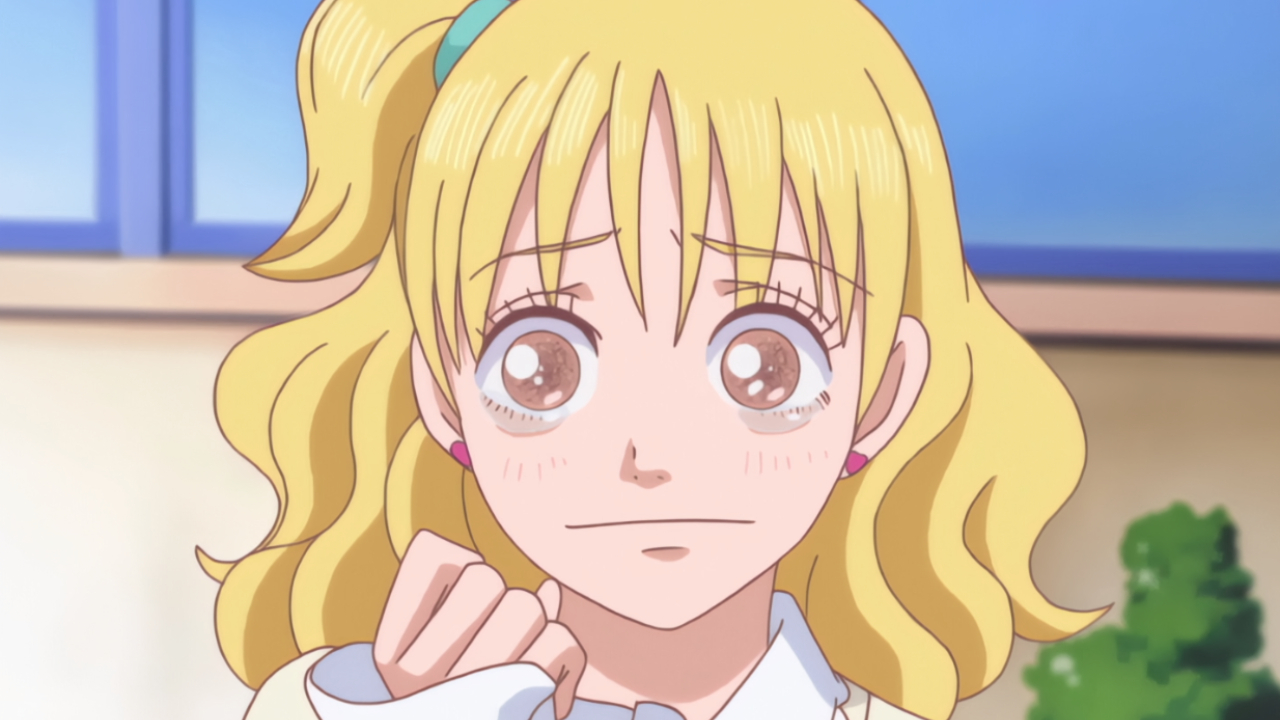
(Posted February 18, 2024)
[SPOILERS For Lovely★Complex ]
[CW: Transphobia]
Quick Disclaimer: There are a lot of bigoted bad faith actors out there using the same kinds of tactics we saw with "Gamergate" to try and push for a lack of localization, AI translations, and other such nonsense. If you're hoping to exploit the words of a trans person to try to bolster those arguments, let me make it clear I do not agree with your logic and that reading this whole essay will show just how much I appreciate the efforts of translators and localizers. If you were linked here by one of those fools, read on and educate yourself fully on the topic.
Discotek's release of Lovely★Complex resulted in an extremely rare look at how the sausage is made when Brendan Blaber, AKA JelloApocalypse, made a now deleted post on Patreon discussing his work on Love★Com's localization and dub. Blaber received condemnation from both Diskotek and SoundCadence — who produced the dub — which resulted in speculation that Blaber would now be blacklisted from the industry. While some of Blaber's statements in that post were proven to be outright wrong in multiple instances, his discussion on how changes were made to the dub surrounding Seiko Kotobuki's representation are worth noting.
For those that don't know, Seiko is a transgender woman introduced to the cast early on in the anime. She has a crush on Otani, the guy Risa is falling for. It's made clear Seiko isn't just a crossdresser either. She literally says in Episode 5, "I don't think of myself as a boy at all! God just put the wrong parts on my body!" She is also described in the subtitles as having the "heart of a woman" later Episode 8.
While it is clear that the series is attempting to be progressive with her representation, her introduction is problematic to say the least. It involves a storyline surrounding trans panic and Seiko is constantly misgendered in the episode of the anime (she even misgenders herself) in the original subtitles, with the misgendering being removed from the dub. The manga isn't much better as it includes a gag where Haruka repeatedly tries to lift her skirt to expose her genitals with a grabbing tool.
This could all be described as YIKES to say the least. While series author Aya Nakahara was obviously attempting to be more progressive than most by showing a friend group that accepts and supports Seiko for who she is when she created the manga in 2001, she obviously stumbled while trying to do so.
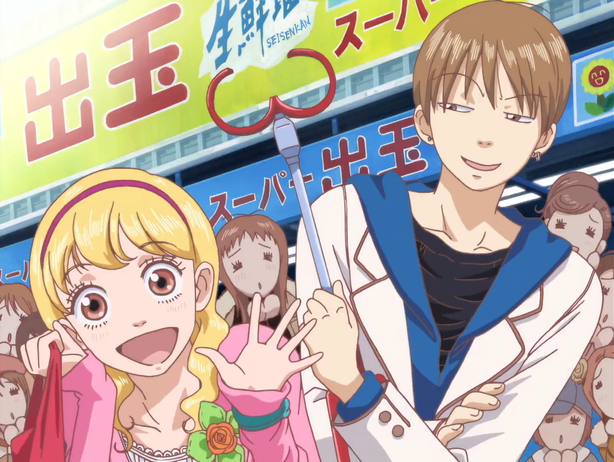
Here is what Blaber said was done to change this in the dub of the anime within his post:
"The Seiko introductory episode is about Seiko's gender identity, so it's not like we could write it out entirely. But we changed a lot of things to take the edge off... In the sub, Otani and Risa's end-of-episode reactions could generously be called 'Confused, but they got the spirit' about the whole thing. We rewrote those to be a lot more supportive of Seiko, especially Otani's dialogue, which made it pretty clear he was still kind of disgusted by her." Not only was a trans person cast as Seiko in the dub, but the script was also passed by several trans sensitivity readers which is an incredible step above and beyond not all companies would take. Sound Cadence deserves to be applauded for these efforts.
However, after watching the dub with the original more accurate subtitles for comparison, I personally believe that removing that insensitivity in Seiko's representation was a mistake. While making the dub less transphobic ultimately results in a more marketable product with today's English speaking audience and was done with the best intentions, It does a disservice to audiences, trans people, and to the preservation of Japan's history when it comes to queer representation in media.
No matter where you fall on the sub vs. dub debate, the reality is that the majority of fans of foreign media watch their shows dubbed, especially if they are casual fans. According to Kelly Luegenbiehl, current Vice President of Franchise and Spectacle Series at Netflix, "People say they prefer the original, but our figures show they watch the dubbed version." The Hollywood Reporter also reports, "consumption of dubbed content on [Netflix] is scaling even faster, up on average more than 120 percent annually."
As it stands, Lovely★Complex is generally considered to have solid trans representation with issues, which is the truth. A whitewashed adaptation like the one presented in the dub is essentially lying about the series in a way that will impact perceptions of the work as a whole and cause real harm. Especially in the case of Love★Com, Discotek themselves heavily advertised the new dub as a major selling point for its release making it even more likely than usual to be the way the anime is consumed.
Those who return to the series having not seen it in a long time that choose to experience the novelty of the new dub will think the series is even more progressive than they remembered. Newbies watching the series in its most accessible form might share similar thoughts on its progressive nature. This can lead to recommending the series to others and stark surprises for anyone who decides to check out the subtitled version or the manga and is suddenly slapped across the face with transphobia.
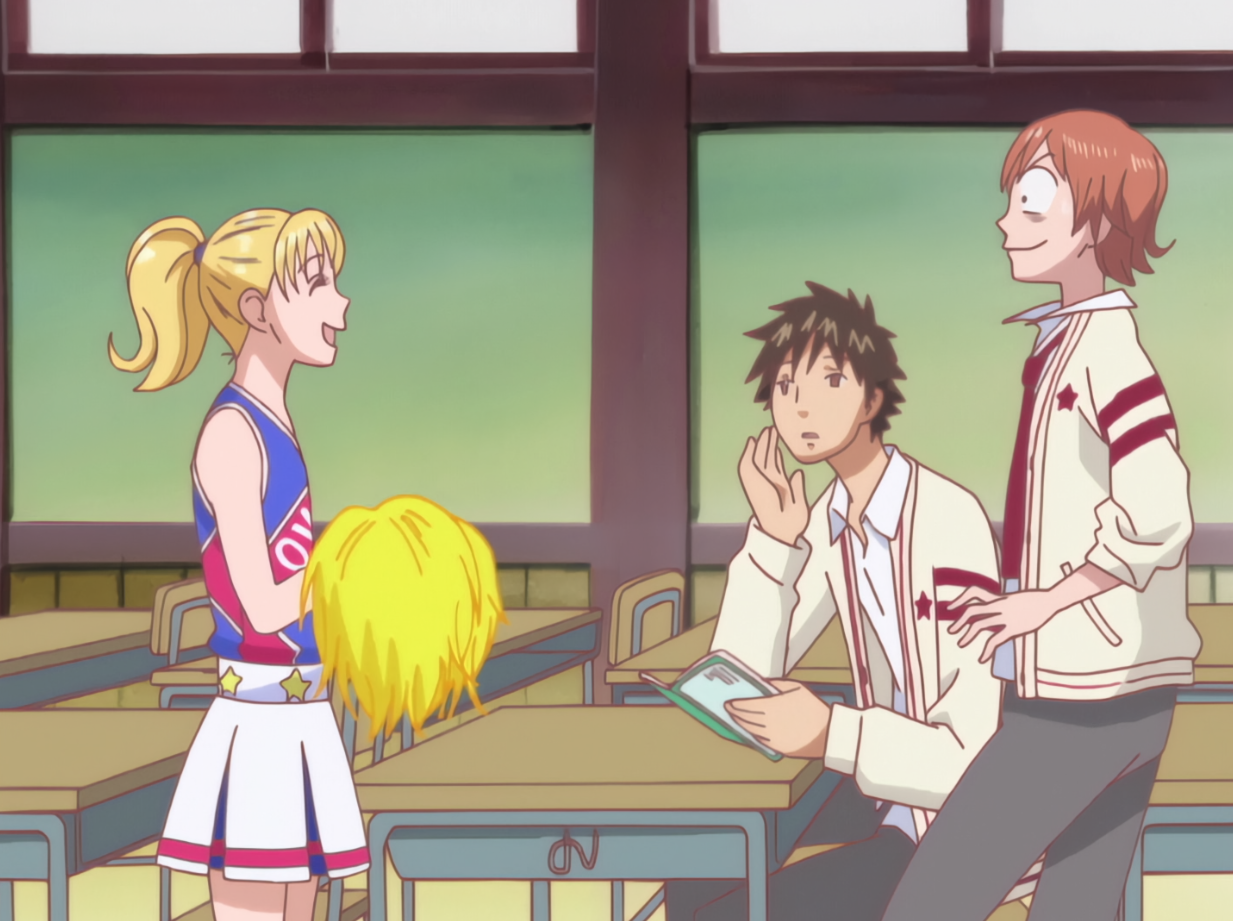
Removing the transphobia becomes even worse when realizing Lovely★Complex is a historic release. Like it or not, it is erasing the transphobia that existed at the time it was created, both in 2001 for the original manga, and 2007 when it was decided to still be included for the anime adaptation. We can't just sweep under the rug that a beloved shojo series has these issues just because it makes us feel better to watch it today.
A similar issue has been playing out as streaming services remove episodes from shows that feature actors in blackface. While removing this offensive material seems good on the surface, there are Black creators that disagree. As Bianca Sams, a screenwriter behind Titans, The Originals, and other notable series, told Business Insider, "Pretending these episodes never existed doesn't change the fact that they did. They were written. They were shot. They were edited. Millions of dollars were spent on them. They got approved by studios, networks, producers. It happened. Taking them off the air doesn't change that. Because erasure and abdication of responsibility never fixes a problem — it simply exacerbates the issue."
This is the same with Lovely★Complex and its transphobia. It's unfair to camouflage the series' problematic elements. Trans people deserve to know that a wide variety of showrunners, publishers, voice actors, script writers, studios, TV networks, executives, and a whole other mess of staff approved the show and that it was considered acceptable within Japan in 2007. We don't need to and shouldn't be hiding those facts from people consuming the show in 2024 or beyond just to pad the pockets of the people who made those decisions. Or so we can feel more comfortable while watching instead of facing these issues head on as an audience today.
We need to make sure that abdication of responsibility Bianca Sams mentioned doesn't happen within our favorite anime. I think of Insane Clown Posse's Violent J and how he responded to having homophobic lyrics in their earlier works.
"The amount of gay Juggalos out there is really surprising. I think about them doing their research and getting the old records, getting excited about it, and getting their hearts broke or something, you know? I tell my daughter, 'For the rest of your life, when your friends ask why your dad said that, say it's because your dad was a fool. Don't defend me. Say I was a fool then, but I'm not now.' There's no excuse. I was going with the flow, and that's the very thing we preach against — being a sheep. And that's what I was doing."
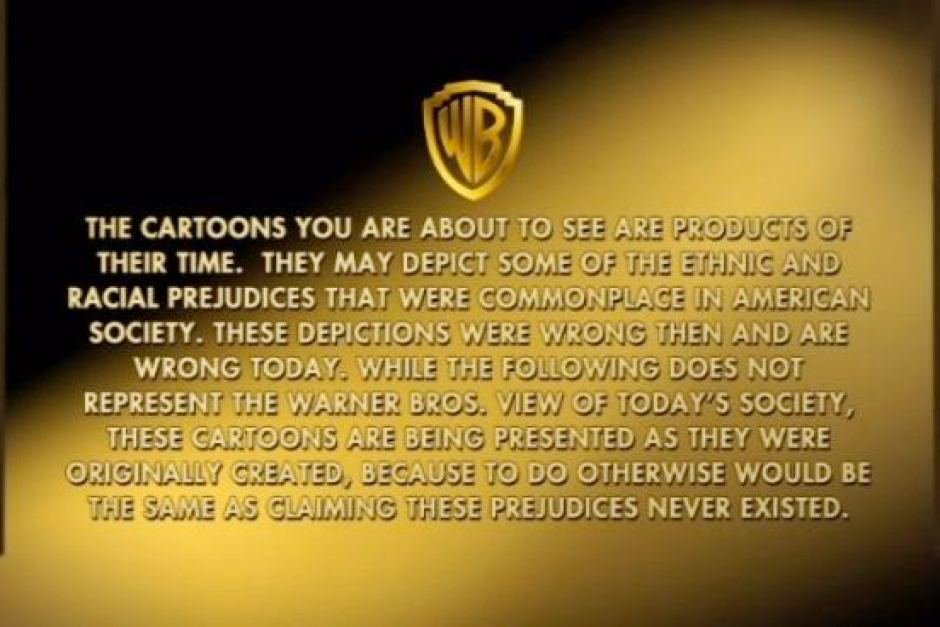
Those releasing shows need to be brave and call the original creators "fools" in such a manner as well by refusing to censor this content for them. Gone with the Wind is an important historical piece of cinema history and it now airs with disclaimers about the racism portrayed within it. Disney+ contains disclaimers now on certain shows and episodes but that wasn't until after Warner Brothers set the gold standard for doing so with its Looney Tunes releases. Just because the Censored Eleven don't air and aren't released anymore doesn't mean they stopped existing. It doesn't mean those prejudices arent part of this icon of animation history. Anime as a medium should be upheld to the same standards with its history remembered warts and all.
If we don't, we also lose the opportunity to understand how and why these things were once considered acceptable so they don't happen again. We don't get to learn from our history so we are doomed to repeat it. Back to the example with Violent J, he discussed the history behind why that homophobia was accepted back then in that same interview. "It was just part of life back then. We wanted to be hardcore, and that's why we did it, you know? And when I look back now, what can I say? We don't have an excuse. I can tell you this: There was never a time when we had a problem with gay people. It was just the word being thrown around, like 'asshole.' It was just something we called each other all the time — just a bunch of dumbasses."
Knowing just how casually people could make homophobic jokes back then puts into perspective how far we've come now. It's the same for those kinds of jokes and moments happening in Lovely★Complex When we don't get to talk about these things because they were purposefully hidden from us, it causes irreparable damage as a whole to our understanding of history.
Which makes Lovely★Complex being held up as better trans representation than it is because of its dub that much more insulting to the anime and manga that were far more progressive while being created earlier. Good but imperfect was impressive back in the 90s with anime like Sorcerous Stabber Orphen or manga like Barcode Fighters. It's far less impressive when you see Wandering Son began in 2002, just one year after Love★Com started to be published. Tokyo Godfathers hit theaters in 2003. Hell, the often memed episode of Dirty Pair featuring a trans woman released all the way back in 1985 and arguably did a better job at representation in ways than this anime that originally hit screens in 2007.
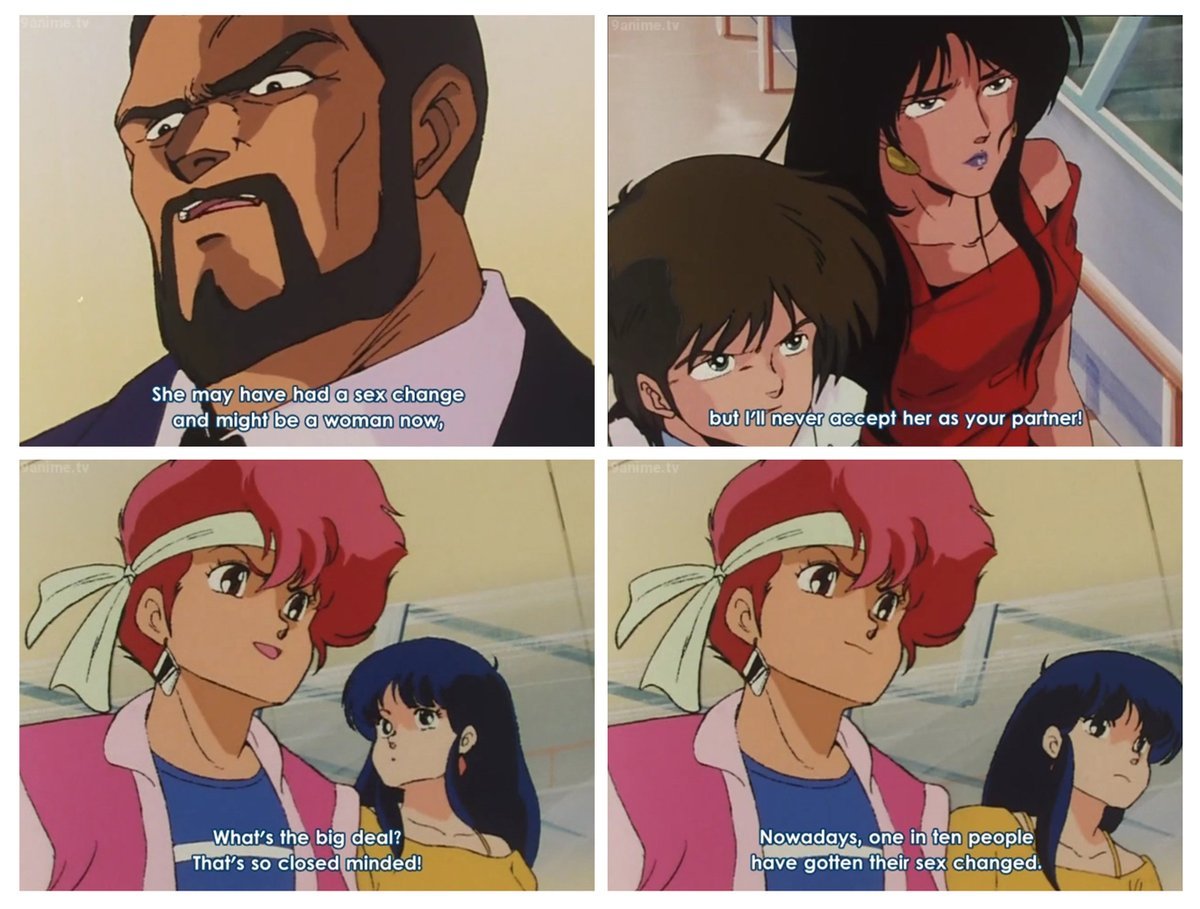
So if older works are transphobic? The creators have to stand with the work they created and the consequences that causes with consumers and how the public in general perceives them. This goes double for newer shows coming out now so people can stand up for and defend their communities being represented inside them. If studios do something bad and wrong, they deserve the backlash and not to be protected by translators and localizers who are already doing amazing work and don't deserve the kind of circus that surrounds it.
Which hurts because in this case the localizing crew ironically made a piece of representation worse with their attempts to make things more progressive that actually hurts a major thematic element of the Lovely★Complex anime. One of the coolest parts of the anime is that after Seiko's introduction, she's treated as just another member of the crew for the rest of the series. She's never gendered incorrectly and is generally supported by her friend group. By making them even more accepting and better allies to begin with, the kids' growth into becoming the allies they are by the end of the series loses a lot of its punch. Which is unfortunate as this dynamic is something not seen as much in anime or media in general and is a uniquely strong point for Love★Com.
It feels strange to type these words as a trans person but I truly wish that Lovely★Complex had remained more transphobic and I hope transphobia isn't wiped from future release of titles old or new for anime as well. These shows are cultural snapshots of their times and deserve to be viewed in contexts as close to those times as possible. We should respect audiences to be able to watch the material presented and form their own opinions based around it. We deserve to hold creators accountable for what they deem acceptable or not. I know there are bad actors in the anime community that make that difficult, but I'm confident we can triumph in doing so.
![]()
